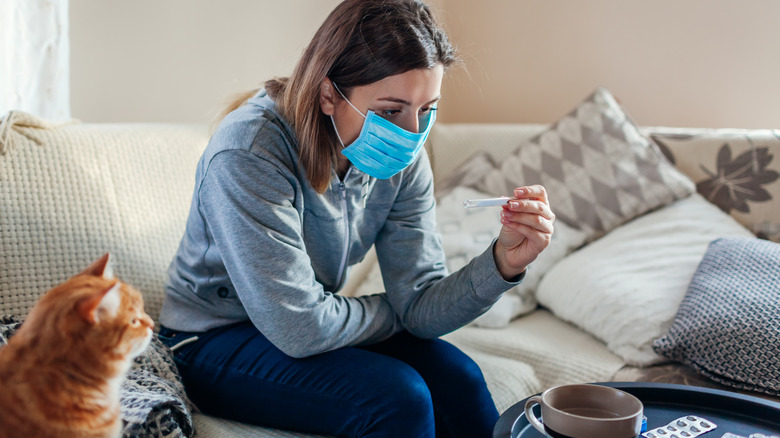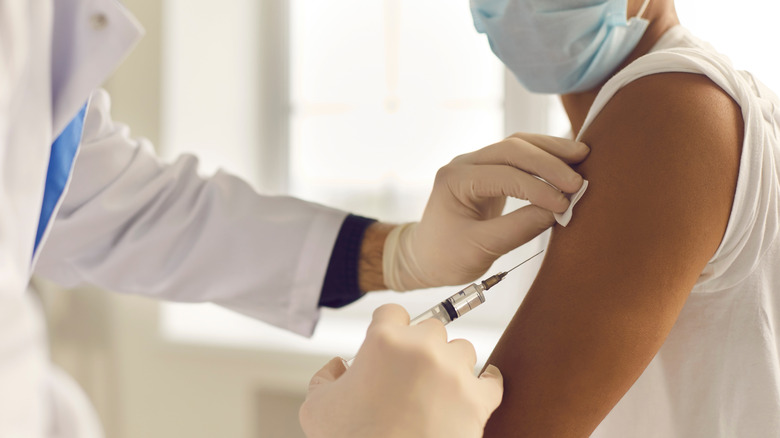How Your COVID Outcomes Can Vary Based On Prior Infections Versus Vaccination
COVID-19 cases are yet again on the rise in the United States, and you'd be hard-pressed to meet someone who hasn't contracted the virus or knows a loved one who has. Understandably, people want to know what they can do to reduce their chances of having severe symptoms, so they can keep themselves and their loved ones out of the hospital.
According to St. Luke's, when someone experiences severe symptoms like trouble breathing, chest pain, lightheadedness, high fever, or low oxygen levels due to COVID-19, they should seek immediate medical attention. They may have to take a trip to the hospital for treatment. It's also possible to have a mild case of COVID-19 (per Healthline). In these circumstances, individuals may experience symptoms like a runny nose, sore throat, sneezing, loss of smell, and taste, but will not need to be hospitalized.
To decrease the chances of having to go to the hospital as a result of COVID-19, the Centers for Disease Control and Prevention (CDC) recommends that anyone eligible for vaccination continues to receive their booster shots. At present, the most updated booster shots are called bivalent boosters, which protect against the original virus as well as the Omicron variant BA.4 and BA.5 (per CDC).
After contracting COVID-19, the body appears to become immune to the virus for a period of time, according to the CDC. How is the severity of future COVID-19 infections affected by previous infections or vaccinations?
How can being vaccinated change your COVID outcomes?
Despite the fact that some people may prefer to rely on their natural immunity to combat the severe effects of COVID-19, a recent study published in the American Journal of Public Health has indicated that vaccination appears more effective at preventing hospitalization. According to the researchers of the study, it was discovered that the vaccinated participants were more prone to reinfection than those who had natural immunity from a previous infection. Individuals who are vaccinated can still contract COVID-19, but they are more likely to experience mild symptoms than those who are unvaccinated, according to the Centers for Disease Control and Prevention (CDC).
In addition, the researchers of the study found that vaccination was associated with fewer emergency visits, hospitalizations, and deaths compared to the individuals who had acquired immunity from being previously infected with SARS-CoV-2. Interestingly, hospitalization and death for any reason, including for causes other than COVID-19, was found to be 37% lower for those who were vaccinated compared to those with natural immunity.
The researchers believe that these results support the potential benefits of getting the vaccine. "As vaccinated individuals were more likely to actually get COVID than those with natural immunity, the lower death rate of vaccine recipients who develop COVID appears to be due to vaccination and not to a tendency for risk-averse behaviors, such as mask-wearing, hand-sanitizing and social distancing," hypothesized Dr. Shaun Grannis, the co-author of the study (per U.S. News & World Report).


